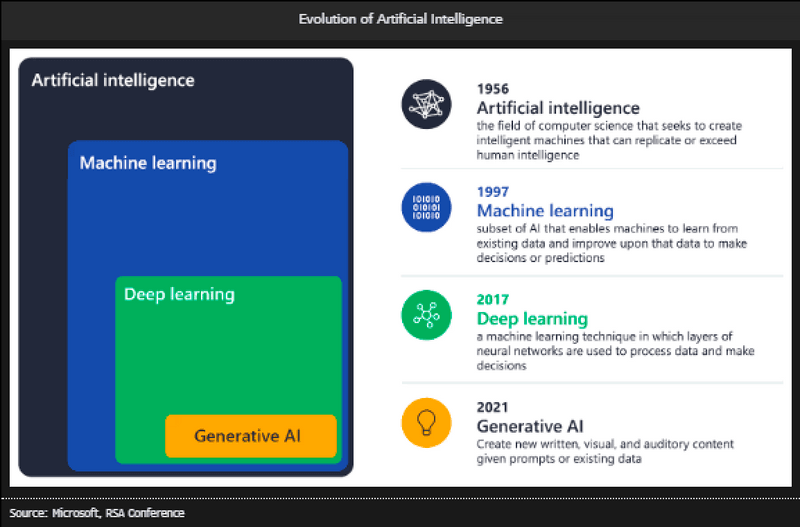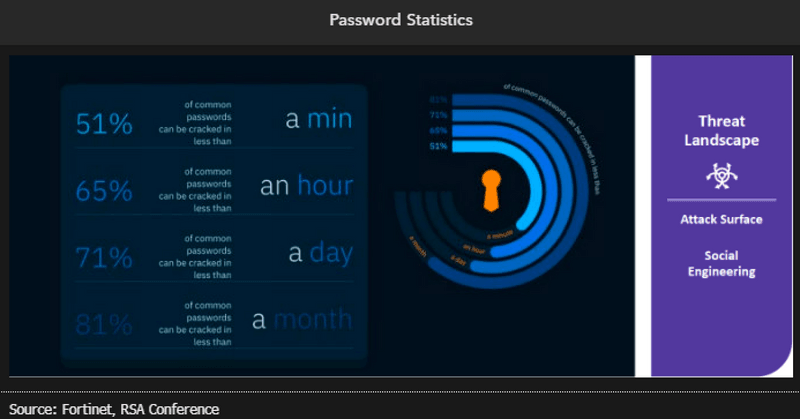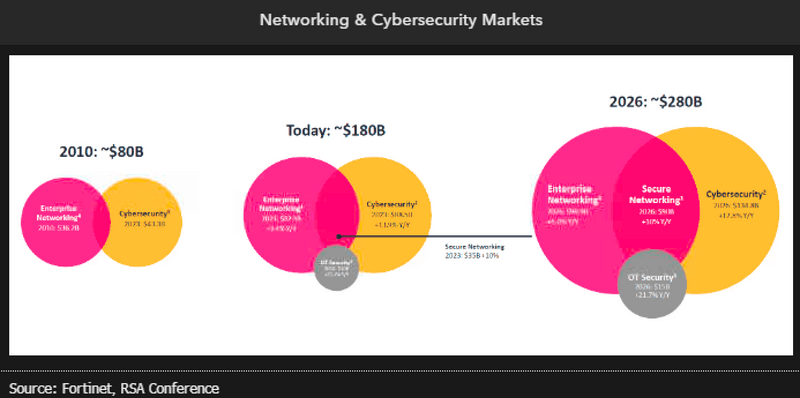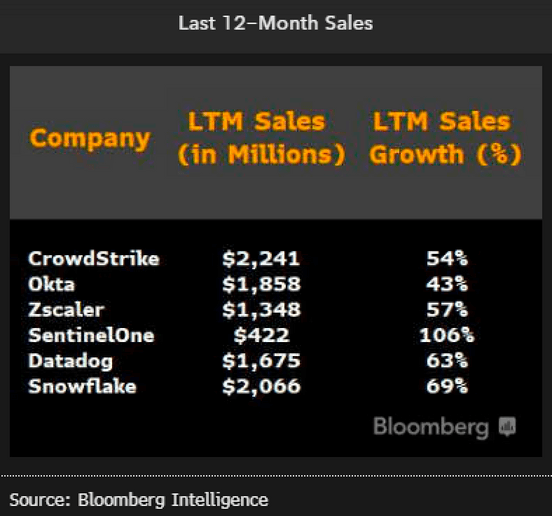This analysis is by Bloomberg Intelligence Senior Industry Analyst Mandeep Singh and Bloomberg Intelligence Associate Analyst Damian Reimertz. It appeared first on the Bloomberg Terminal.
RSA 2023 validated our view that cybersecurity spending is likely to remain non-discretionary even as enterprises seek to curtail other IT outlays. Generative artificial intelligence (AI) was a big focus at this year’s conference and could be a positive catalyst for pure-play cloud-security providers, on top of the workload migration to public clouds.
Cybersecurity spending gets help from generative AI
Most cybersecurity companies highlighted enhancements tied to leveraging generative AI, such as a security copilot and a conversational tool that can summarize threats and suggest next steps, yet there was a tacit acknowledgement that the technology could make attacks more sophisticated. Hackers are likely to use generative AI to boost phishing rates in their emails and to break passwords much more quickly.
Pure-play cloud companies, including CrowdStrike, Datadog, Zscaler, Okta and SentinelOne, may benefit from generative AI, while Microsoft’s positioning remains strong in security due to its bundled suite of infrastructure, application and security products.

Identity, email security must have offerings
Protection against identity and email security breaches are essential for enterprises of all sizes given the frequent use of these vectors for cyberattacks. This trend is visible in Microsoft’s strong growth in security, along with pure-play cloud providers that continue to take share from established companies like Symantec (Broadcom), McAfee (Trellix) and Trend Micro.
Okta and Microsoft dominate the identity market with a combined share of about 36%, historically having grown at least 2x the industry’s pace. Identity is the fastest-growing segment within cybersecurity, as it’s the most attacked part, with spending projected at a compound annual growth rate of around 17% from 2022-26, based on IDC data.

AI likely boosts advantage for platform providers
Security companies that leverage proprietary data and cloud infrastructure to prevent cyberattacks are likely to take share as enterprises seek to consolidate providers. Microsoft’s rapid growth in cybersecurity, fueled by its use of cloud infrastructure, is a prime example of the trend. CrowdStrike’s module adoption beyond its core endpoint security into identity, workload protection and vulnerability assessment reflect growing use of its suite for consolidation across enterprises of all sizes.
Companies run an average of 40-70 security vendors each, which is costly and time consuming to maintain and no longer sufficient to detect and prevent more sophisticated attacks. Hybrid work and applications deployed on the cloud as a service led to a significant increase in the size of the attack surface needing protection.

Cloud growth set to accelerate
Firewall providers had solid product growth in the past two years, yet we believe pure-play cloud companies can benefit amid tighter IT spending and a longer sales cycle. Companies are less likely to spend on refreshing their firewalls as workload migration to public clouds acclerates. Networking and infrastructure software companies are likely to leverage proprietary data to layer add-on security offerings, which could aid growth rates. Fortinet is focused on driving convergence of networking and security, while Datadog could benefit from the intersection of IT monitoring and security, a trend that was visible at the RSA conference this year.
A few companies, like Tenable, Cloudflare and Check Point, had disappointing earnings, yet it could be mostly attributed to consolidation and a slowdown in firewall product refreshes.
